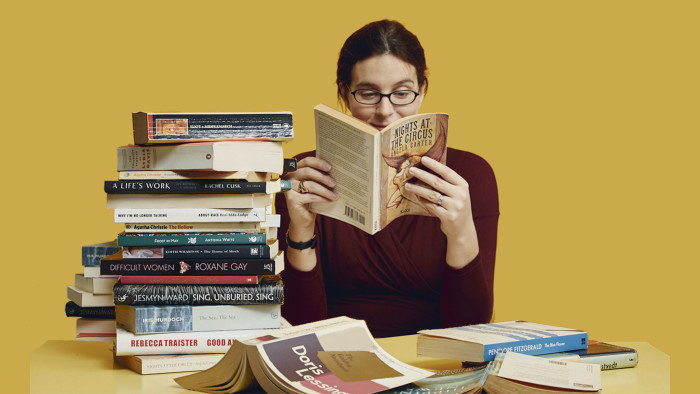How do you know if a book is high quality? At the point when we're initially beginning to compose, we frequently battle with the expectation to learn and adapt. Human instinct frequently drives us to accept for a moment.
We're further along the bend than we truly are, essentially in light of the fact that we don't have any idea what all we don't have any idea about. That issue is a tremendous purpose for why I made the Composing Specialty Expert Arrangements of abilities. I created a timeline for each phase of change.
My expectation is that with those rundowns, we'd have a superior thought of where we are on the expectation to learn and adapt and understand what abilities to handle straightaway.
Notwithstanding, there's something other than knowing abilities that goes into what makes stating "great." That hole between substantial abilities and agreeable stories implies it's dependably challenging to characterize what makes for good composition, particularly while dissecting our own.
How Do You Know if a Book Is High Quality?

Commentators frequently bring up grammatical mistakes, spelling, or language issues in books and, in like manner, notice when books are liberated from those sorts of blunders on the grounds that those are somewhat "simple" to list as proof of a story's quality somehow.
Read Also: Where the Crawdads Sing Book Summary?
In any case, similarly as we probably are aware from self-altering or giving criticism on others' composition, recognizing other composing components, fortunate or unfortunate, is not as simple. We may be capable of saying a person is convincing; however, we do not highlight what makes them so. We could feel a story is fulfilling, however, we do not know why. And so on, and so forth.
Thus, we frequently discuss narrating. The word narrating is many times used to cover every one of the indefinable components that make for an exciting read, and remarkable narrating frequently comes down to components we can't evaluate in others' books, significantly less our own.
Does Storytelling Equal Good Writing?
What number of us have perused books with not terrible but not great writing that we were unable to put down? *raises hand* Many individuals highlight Dan Earthy-colored's books or Stephenie Meyer's Nightfall books as instances of good narrating and meh composing make.
Great composing is about something beyond the art issues of keeping away from mistakes or including tactile data or diving into profound perspective. However great, composing is likewise something beyond convincing narrating. What makes a story "great" is, in many cases, that large number of components in addition to more that amount to a story's quality being more than the amount of its parts.
Can We Define Good Writing?
With that large number of indefinable components, we could try and choose one of those "I know it when I see it" axioms. Yet, that is not exactly obvious by the same token. We could possibly "know it when we see it" in others' books; however, most authors battle to "know it" for their own books.
While certain accounts that are very much checked on are not difficult to compose, others are a tricky bad dream, where we're persuaded it sucks the entire time. Or on the other hand, regardless of whether we like our story, we may be tired of it by distribution time and hence have no distance to pass judgment on its benefits. How do you know if a book is high quality?

All in all, we're in many cases the most awful appointed authorities of our own work. Thus, however troublesome it seems to be to characterize great writing as a general rule, the objective can become inconceivable while checking our own composition out.
Can We Even Tell Which Story Is Our Best?
Ask any creator which story is their "best," and they're probably going to stagger for a response. Perhaps they'll state peruser conclusions or rather answer the subject of which was their number one to compose. Some could pick the book with the most elevated evaluations on Amazon, and others could list their latest story in the expectation they're improving with every one.
Read Also: The Art of Book Cover Design: A Comprehensive Overview
Obviously, subjectivity assumes a part here as well. A lot of records have been composed discussing which books are the best instances of a type, and in the event that we're fortunate, a couple of stories could show up decently reliably. Or then again, ask perusers which Harry Potter book is "ideal," and we'll find a few distinct solutions. Best and outstanding are both abstract.
However, no part of that prevents us from needing to be aware for certain whether our composing is of any benefit. We need to know how awful our most horrendously terrible story is and the way that great our best story is:
Individual Digression: No, I Can't Tell All things considered
I began thinking this previous end of the week about the vulnerable side we have for our composing when I got a call (indeed, a real call) from the More noteworthy Detroit RWA section.
Stone-Cold Heart is a finalist for the 2018 Bookshops' Best Honor, decided by custodians, and this is the story's second last this year. Whoopee! At the point when I referenced my last to my composing best buds, they chipped in their viewpoints on Absolutely Heart:
Would it be advisable for me to have known that not only was my story adequate to last in different challenges, but also that it was my best at this point? Ha! Try not to misunderstand me. I'm happy the story is resounding with perusers and that I am by all accounts improving with experience! However, I don't think I'll at any point have a decent vibe for my own composing quality.
Do We Have to Perceive Our Composing's Quality?
Some could contend that it doesn't make any difference in our thought process, just perusers' thought process. Yet, assuming that we let our self-uncertainty and absence of acknowledgment of our work's quality stew and duplicate together, we could keep ourselves down.
In the event that we're persuaded our composing isn't any great, we won't question specialists (substantially less our "fantasy" specialist). We will not present our work to challenges. We'll be hesitant to trade work with study accomplices or beta perusers. We'll battle with the choice to independently publish. And so on, and so forth.
Then again, assuming we totally overlook the quality issue and convey work that is not prepared, we'll question too soon, squander cash on challenges, wear out beta perusers or study accomplices, or crash after independently publishing. So indeed, we really do have to have a feeling of our composing's quality both to keep us from moving too soon and to ensure we're not keeping ourselves down.
How Do You Know if a Book Is High Quality?
All that takes us back to the subject of how we can figure out whether we're of any benefit. We could need a genuine choice in light of hard proof to back up our deepest desires; however, the most we can help is a feeling of approval through criticism. How Do You Know if a Book Is High Quality?

Regardless of the style of criticism we get from beta perusers, study accomplices, challenge judges, or specialists or editors, we can gain some significant knowledge. We can get a genuinely adjusted image of our composition on the off chance that the criticism addresses both substantial specialty issues and elusive narrating issues.
Read Also: The Impact of Atticus eBook Formatting Censorship and NSFW Books
Does the criticism adulate the melodious nature of our composition, however, it doesn't make reference to our characters' personal process? Does the input spout about our characters being so amiable.
However, not notice whether they felt by and by associated with them through their voice, objectives, or feelings/inspirations? Does the criticism say they cherished the story yet were befuddled on a couple of unexpected developments?
Does the input infer that they weren't intrigued by the composition, yet they needed to perceive how everything ended up being? Does the criticism give credit to areas of strength for however admitting they were exhausted by the story? In this blog, want to know how do you know if a book is high quality?
Assuming we contemplate the unmistakable (melodious composition, expressed objectives, unexpected developments, and so forth) versus the elusive (how characters motivate through change.
The feeling of association with characters, desire to peruse on, and so on), we can presumably imagine many models thusly. The point here is to take the two parts of expressing "quality" into account while perceiving how our abilities add up.
There's no such thing as hard, genuine verification with regard to something so abstract. Yet, with an equilibrium of the sort of criticism we focus on, we can get a decent vibe of whether we have an idea about both the composing make abilities and the narrating abilities. At the point when we add those pieces together, we're bound to make stories better than their parts.
How Do You Know if a Book Is High Quality? Does my clarification of specialty and narrating check out and explain or not? Do you have a feeling about your composing quality, and assuming this is the case.
What makes that sense for you (inside sentiments, outer input, or both)? In the event that you don't have a sense, does that influence how you move toward your composing vocation? Do you have ideas for what other means we could use to figure out our composing quality?
FAQ's- How Do You Know if a Book is High Quality?
What is the quality of a good book?
The main component to make an extraordinary book is most certainly great altering, meaning no mix-ups in punctuation or spelling. It doesn't need to be totally great, yet on the off chance that there are a lot of mix-ups in the book, nobody will need to understand it.
How do you know if something is high quality?
The material something is produced using is an extraordinary spot to begin searching for indications of good or low quality. Basically, great quality items are produced using great quality materials. With textures and materials you need to feel it and search for irregularities like bumps, obstacles, or openings.
What is considered a good book value?
What is a Decent Cost to Book Esteem Proportion? Esteem financial backers frequently lean toward values lower than 1.0, which recommends that an underestimated stock might have been found. The benchmark for specific worth financial backers, be that as it may, may much of the time be values with a less severe P/B worth of under 3.0.
What determines good quality?
The nature of something still up in the air by contrasting a bunch of inborn qualities and a bunch of necessities. Assuming those innate attributes meet all necessities, high or amazing quality is accomplished.







